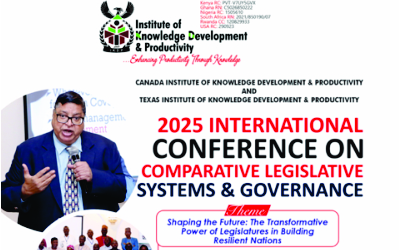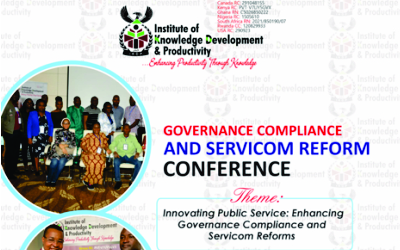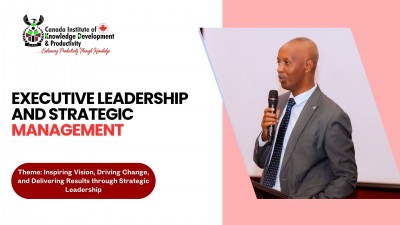Course description
INTRODUCTION
In an era of global uncertainty and unprecedented challenges, the power of legislatures to shape the future has never been more critical. The 2025 International Conference on Comparative Legislative Systems & Governance brings together an elite gathering of thought leaders, lawmakers, scholars, and policy experts from around the world to explore the transformative role of legislative bodies in building strong, resilient nations.
With the theme "Shaping the Future: The Transformative Power of Legislatures in Building Resilient Nations," this event will dive deep into how legislative systems can be re-imagined and strengthened to meet the demands of today’s complex global landscape. From climate change and economic inequality to democratic integrity and international crises, legislatures are at the forefront of creating policies that respond to these challenges, shape national resilience, and ensure sustainable development.
Why This Conference Matters: The power of legislation lies not only in passing laws but also in shaping the structures that sustain nations. This conference will serve as a critical platform to examine how legislative systems whether in advanced democracies or emerging nations can be innovative engines for positive change. Discussions will cover best practices, comparative legislative systems, and cutting-edge reforms designed to enhance governance, transparency, and accountability.
A Platform for Global Innovation and Cooperation: As the world becomes increasingly interconnected, solutions to local problems often require global perspectives. This conference will foster cross-national collaboration, offering opportunities for networking and knowledge exchange that can help drive legislative excellence and innovation worldwide. It’s more than just a series of talks; it’s a vibrant dialogue about the future of governance.
Who Will You Meet? Expect to connect with global parliamentarians, policymakers, academics, development experts, legal practitioners, and civil society leaders who are all working at the intersection of legislation and governance. Whether you are seeking to enhance your legislative expertise or explore groundbreaking research, this conference will provide unparalleled opportunities to engage with the latest ideas and real-world solutions.
By the End of This Conference, Participants Will Be Able To:
§ master the role of legislatures in national resilience: develop an in-depth understanding of how legislative bodies across diverse political systems serve as key drivers of national resilience, shaping not only the legal frameworks but also promoting social cohesion, economic stability, and institutional trust in both stable and fragile states;
§ critically compare legislative systems globally: conduct a comparative analysis of various legislative systems (including parliamentary, presidential, and hybrid models), assessing their effectiveness in addressing governance challenges and policy-making, while identifying the specific attributes that contribute to sustainable development and democratic resilience;
§ identify and implement legislative innovations: discover cutting-edge legislative approaches and frameworks that have been successfully implemented worldwide to address global challenges such as economic inequality, environmental degradation, and social justice. Gain practical tools to implement these solutions within local and international legislative contexts;
§ enhance legislative governance for future challenges: gain actionable strategies to improve legislative oversight, accountability, and transparency, ensuring that legislative institutions are adaptable, inclusive, and robust in navigating future governance challenges—whether political, economic, or environmental;
§ cultivate and leverage global legislative networks: build and strengthen international networks of lawmakers, researchers, and governance experts to foster collaboration on cross-border legislative issues, and create mechanisms for ongoing dialogue and knowledge-sharing to support global resilience efforts;
§ anticipate and address emerging global issues: engage with leading experts to explore how legislatures can proactively address emerging global challenges—such as climate change, migration, technological disruption, and evolving geopolitical tensions—by integrating foresight and adaptability into the legislative process; and
§ integrate cross-disciplinary insights for legislative excellence: apply insights from disciplines such as economics, social sciences, and law to legislative processes, ensuring that policy decisions are informed by a holistic understanding of societal impacts and that they contribute to inclusive, equitable governance.
CONFERENCE CONTENT
Module 1: The Role of Legislatures in National Resilience
This module explores how legislative bodies serve as the backbone of national resilience, examining their roles in promoting economic stability, social cohesion, and institutional trust across varying governance systems.
- Legislatures as Pillars of National Resilience: Understanding the integral functions legislatures play in maintaining stability in both developed and fragile states.
- Case Studies on Resilience: Examples from different regions highlighting how effective legislative governance has shaped national responses to crises.
- Building Social and Economic Resilience: The role of legislative frameworks in protecting vulnerable populations and promoting long-term growth.
- Interactive Session: How to design legislative mechanisms that foster resilience in diverse contexts.
Module 2: Comparative Legislative Systems – Global Perspectives
Participants will delve into comparative analysis of legislative systems worldwide, understanding how varying structures impact policy-making, governance, and the ability to respond to global challenges.
- Parliamentary vs. Presidential Systems: A comparative analysis of governance effectiveness in addressing modern challenges.
- Hybrid Legislative Models: Examining innovative legislative systems that combine elements of various governance models for more effective outcomes.
- Impact of Legislative Systems on Policy Formulation: How different systems influence national and international policymaking.
- Workshop: Developing frameworks for evaluating the effectiveness of legislative systems in fostering national resilience and sustainability.
Module 3: Legislative Innovations for Global Challenges
This module introduces participants to pioneering legislative solutions and best practices that address global challenges such as inequality, climate change, and social justice.
- Legislative Approaches to Sustainable Development: How forward-thinking legislation can promote long-term sustainability and environmental stewardship.
- Tackling Economic Disparities: Legislative innovations that mitigate income inequality and ensure equitable access to resources.
- Social Equity and Justice in Legislation: Exploring policies aimed at protecting marginalized communities and promoting inclusive governance.
- Interactive Case Studies: Examining successful legislative reforms that have addressed these challenges in diverse regions.
Module 4: Strengthening Legislative Governance and Accountability
This module equips participants with tools and strategies to enhance the effectiveness, transparency, and accountability of their legislative institutions, preparing them for future governance challenges.
- Enhancing Legislative Oversight: Strategies to improve checks and balances within government institutions.
- Governance Reforms for Greater Accountability: Building stronger, more transparent legislative processes that encourage public trust and participation.
- Frameworks for Legislative Adaptability: How to future-proof legislatures to be flexible and responsive to rapid changes in the political and economic landscape.
- Workshop: Designing governance structures that incorporate mechanisms for adaptability, transparency, and accountability.
Module 5: Global Networks and Collaboration for Legislative Excellence
This module focuses on building and leveraging international networks and collaborations to enhance legislative effectiveness and resilience in addressing cross-border challenges.
- Fostering International Legislative Collaboration: Best practices in cross-national partnerships and cooperation on global legislative issues.
- Establishing Global Legislative Networks: Building sustainable networks for knowledge-sharing, joint policy development, and collaboration.
- Case Studies of Successful Cross-National Legislative Cooperation: Examining instances where international collaboration has led to impactful legislative outcomes.
- Interactive Session: Crafting strategies for creating long-lasting, productive legislative partnerships across borders.
Module 6: Legislatures and Emerging Global Issues
This module prepares participants to anticipate and address new and evolving global challenges, such as climate change, technological disruption, and geopolitical shifts, through legislative action.
- Legislating for the Future: Climate Change: How legislatures can develop proactive policies to address climate change and environmental crises.
- Technological Disruption and Legislation: The impact of rapid technological advancements on governance and how legislatures can adapt.
- Geopolitical Shifts and Legislative Responses: Examining the role of legislative bodies in navigating new geopolitical realities.
- Interactive Panel Discussion: Engaging with experts on future-proofing legislative systems to tackle upcoming global issues.
Module 7: Cross-Disciplinary Insights for Legislative Excellence
This final module integrates insights from various disciplines—economics, social sciences, and law—to ensure that legislative decisions are holistic and contribute to inclusive governance.
- Economic Insights in Legislation: Understanding the economic impact of legislative decisions and how to foster growth while maintaining equity.
- The Role of Social Sciences in Legislative Processes: Applying social science theories to improve policymaking and governance outcomes.
- Legal Frameworks for Effective Legislation: Ensuring that legal structures support long-term governance and accountability.
- Workshop: Developing cross-disciplinary approaches to crafting well-rounded, impactful legislative policies.
What will i learn?
- Master the role of legislatures in national resilience:
- Critically compare legislative systems globally
- Identify and implement legislative innovations
- Enhance legislative governance for future challenges:
- Cultivate and leverage global legislative networks:
Requirements
- June 30 - July 4, 2025. August 18-22, 2025 September 1-5, 2025 November 17-21, 2025 December 15-19, 2025 January 12-16, 2026
Frequently asked question













